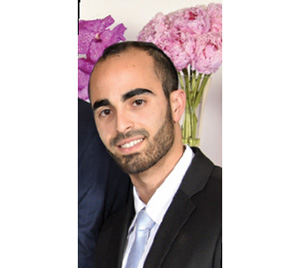
We’ve all heard the stories about how a few kind words can change and save lives. A “good morning,” a “how are you” or even an easy gesture of showing interest and concern—there are many dramatic stories how these touched the hearts of others and produced unimaginable results. What kind of people are the protagonists in these stories, and did they contain a certain unique middah?
After hearing the news about Yosef’s “death,” his father Yaakov tore his garments, put on sackcloth, and mourned for him. He was in enormous grief and was inconsolable. The brothers, seeing the anguish of their father, apparently regretted their decision to sell Yosef, as seemingly seeing the pain of their father was too great to bear. Indeed, the pasuk (with Rashi’s commentary) tells us that the brothers demoted Yehuda from his leadership position because after seeing their father’s distress they blamed Yehuda for telling them to sell Yosef and for not instead persuading them to return Yosef. Moreover, the Midrash Aggada (42:3) writes that since Yosef’s sale, not one day had gone by when the brothers had not said “let us search for Yosef and return him to our father!” Thus, it seems safe to assume they had an enormous amount of regret upon seeing the reaction of their father, so much so that they went to such an extent in trying immensely to find Yosef in order to spare their father of any more grief.
For some things it’s difficult to see the ramifications and future results. Cause and effect of our actions are not always so apparent. But some things we can all agree are easy to determine: Isn’t it obvious that selling Yosef would have caused their father Yaakov tremendous pain? Why didn’t the brothers realize that at the time of the sale, and why only now upon actually seeing their father’s distres are they hit with that realization?! Rav Simcha Zissel of Kelm explains that at the time the brothers were so consumed with themselves and their own needs that they did not stop to consider the impact of their actions on anyone else.
And then we have Yosef. Yosef is sitting in jail and sees two inmates, the chief cupbearer and chief baker, looking quite troubled, perhaps depressed. He says four words to them: “מַדּ֛וּעַ פְּנֵיכֶ֥ם רָעִ֖ים הַיּֽוֹם,” why do your faces look troubled today? They explain to Yosef that they are troubled by the dreams they had and can’t understand them. Yosef interprets it for them, and eventually this snowballed into an incredible sequence of events: Pharaoh has his dreams; he can’t either find a good understanding of them; the chief cupbearer tells him about Yosef; Yosef interprets Pharaoh’s dreams; Pharaoh takes an interest in Yosef and appoints him to be second in command, etc. And as Rabbi Frand points out, we see how just four words can change the course of history.
It’s more than just four words. Like the protagonist in the famous dramatic stories, they and Yosef perhaps shared a common middah—one that is the opposite of the brothers, one that is the antithesis of being self-consumed. Instead, perhaps, they shared the trait of being self-expanded. They weren’t consumed with their own needs and things “they gotta do,” but rather opened themselves up to see the needs of others and offer help accordingly. Yosef also could have easily been consumed with his own “problems”—sitting in a dark and damp jail, an utterly hopeless situation. But instead, he utilizes this middah of expansion to consider the woes and troubles and needs and wants of other people. The people we hear who said a good morning to someone, or who gave a few minutes of their time to someone, and saw a heroic result are people who also perhaps contained this trait. Thus, their simple kind acts toward others was a natural result of their inner workings.
“Doing our thing” is our job. Indeed, “If I am not for me, who will be for me” (Pirkei Avot 1:14). Being self-consumed is the extreme of it, where we can become blind to the needs of others and sometimes even indirectly hurt them. Someone self-consumed may not see the needs of others and may not have the foresight to see the effects of his actions on others, even on his or her loved ones. However, being self-expanded is the strength where one has tapped into a higher level of their potential. Where one can both “do his thing” while also being there for the other person, and of course making sure not to trample on anyone on the way. Someone self-expanded has stretched his potential to be able to not only fend for himself but to also be sensitive to the feelings and needs of others.
That’s the nice guy we all know.
Binyamin Benji is a graduate of Yeshivas Rabbeinu Yitzchak Elchanan, and Wurzweiler School of Social Work. He currently learns in Eretz Yisrael, and is the author of the Sephardic Congregation of Paramus’ weekly Torah Talk. He can be reached at [email protected].










